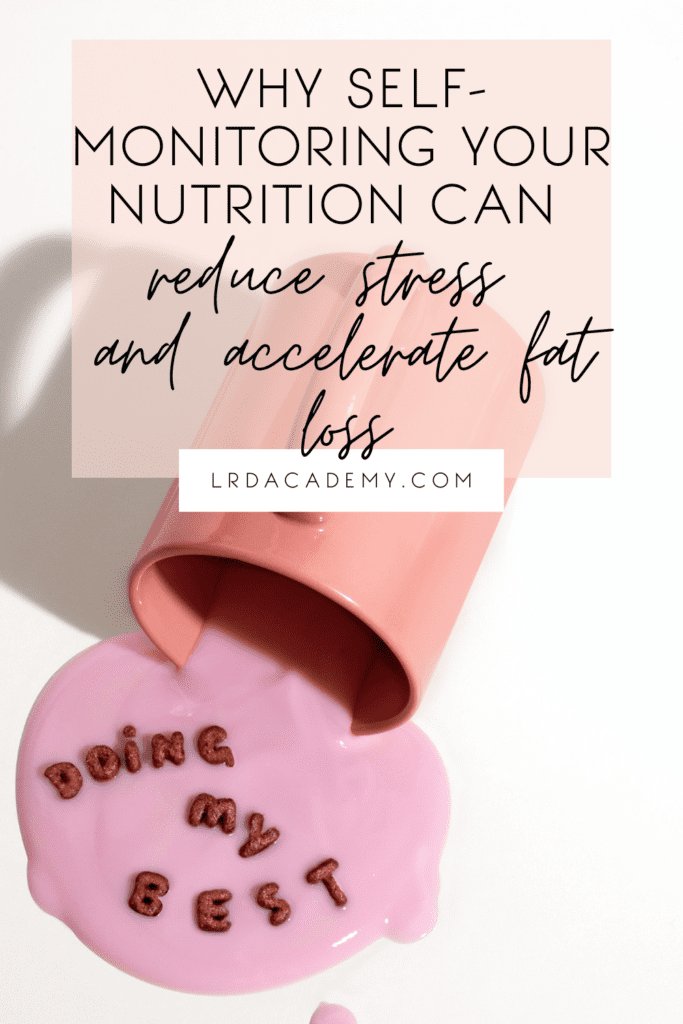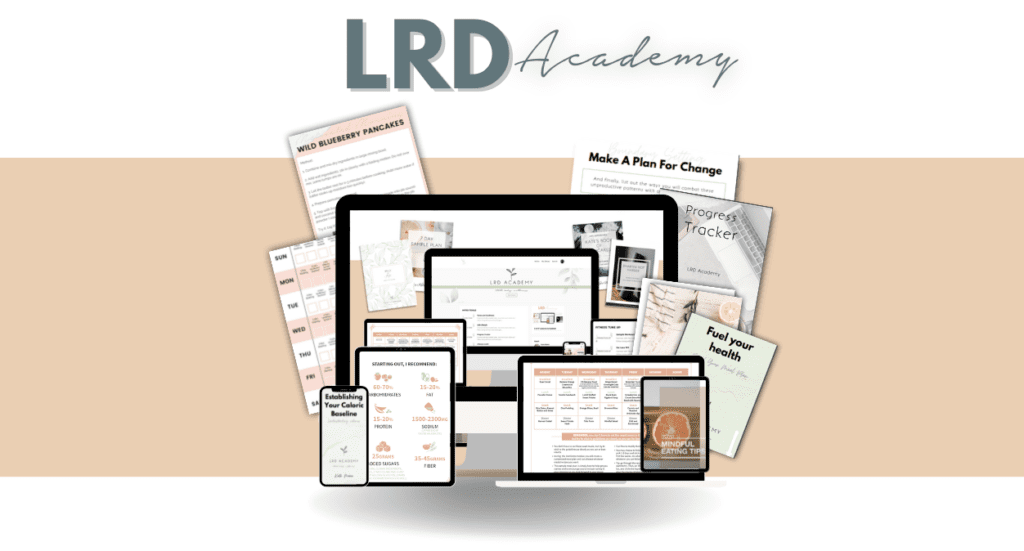
Why Self-Monitoring Your Nutrition Can Reduce Stress (and accelerate fat loss)
Right now it seems there is a big debate between tracking calories vs “intuitive eating” when to comes to monitoring your nutrition. I am sure if you have dieted at some point recently you have heard both of these terms referred to across social media.
For the sake of clarity (and your reading enjoyment), I define intuitive eating as eating normally: eating when you’re hungry, and stopping when you’re satisfied. Now, I know from personal experience, that is not always as “intuitive” as we’d like it to be. As a behavior change and nutrition specialist, I actually DO recommend my students work on monitoring their nutrition (tracking macros, food journaling, etc), at least at first, and I am about to tell you why. However, let’s be clear that, whether you are tracking food or not, there still has to be a degree of awareness and self accountability.
Now, why do I recommend someone starting their weight management/wellness journey track their food intake or monitoring their nutrition? Don’t we want to pull away from the dieting mentality? Aren’t we afraid that if we are tracking our nutrition we are becoming disordered or restrictive? Not necessarily.
Tracking food does NOT = disordered eating. That’s only if you take it to the extreme (and that really depends on the history of the individual). Education is empowerment, and taking time to learn what we don’t know about our nutrition, liberates you from the stressing and guessing. Imagine if you took the time to answer all of your own nutrition questions, and never had to second guess if you were “doing it right” ever again? I mean don’t you think that alone would alleviate so much stress?
We must also discuss the importance of pairing your nutrition goals with a solid meal plan. It doesn’t have to be some elaborate menu with advanced recipes either. In fact, I recommend you stick to whatever will be easiest for you to stay consistent-even frozen or microwave dishes! Because falling off track is what keeps you in this exhausting cycle. Failing to plan, is planning to fail.
If you truly have no idea what you’re doing, please take my advice and invest some time into auditing and restructuring your nutrition as necessary to take the extra stress off your plate (pun fully intended).
Here are some extra mindful nutrition tips to keep things simple:
Keep a meal journal/log instead of “tracking”/counting your calories.
Practice mindful eating to listen to hunger cues; (intermittent fasting can actually help a lot with this when applied correctly). Schedule a private coaching session to learn more.
If you are going to log your meals, do it ahead of the day (having a rotational meal plan is an excellent tool so you aren’t guessing or tracking as you go).
Familiarize yourself with portion sizes or have a cheat sheet in your kitchen somewhere with basic measurements; (tracking macros is actually a great way to learn these at first). My Nutrition Starter Plan comes with all of these resources.
Double check behind yourself periodically with your portion sizes just to make sure your “eyeball” game is on point.
Take 2-3 day breaks between logging until you are only checking in as needed.
Listen to this awesome podcast on mindful eating I did with my friend, Kyra.
Pin for later 📍


+ COMMENTS